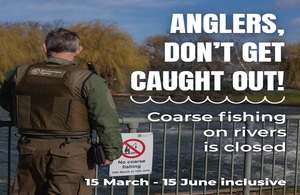New police powers to crack down on unauthorised encampments come into force
Trespassers who set up camp illegally on other people’s land or in local communities could face up to three months in prison from Tuesday 28 June, as a new criminal offence becomes law.
Cracking down on antisocial people causing misery by setting up illegal camps and refusing to remove their vehicles, delivers on a key government manifesto commitment.
Made possible by the Police, Crime, Sentencing and Courts Act 2022, on Tuesday police in England and Wales will be given new powers to limit the harms caused by such unauthorised encampments and new statutory guidance will be published.
Police will now be able to ban trespassers from returning to a patch of land for a year, rather than just three months.
And the definition of harm will be broadened, so that police can take more decisive action to tackle unauthorised encampments when necessary.
They will be able to intervene where unauthorised encampments are causing environmental damage or distress to the community – not just the landowner.
Home Secretary Priti Patel said:
No one should have unchecked rights to trespass on other people’s land, or cause misery in communities without consequence.
The position in law is now very clear – trespassers must move their vehicles when asked to do so, or face jail time and a hefty fine.
Illegal encampments cause misery for thousands of people: they damage and pollute environments and often result in local residents facing unacceptable intimidation on their own doorstep.
Delivering on our manifesto commitments, this government will always stand on the side of the law-abiding majority and on the side of the police.
Under the new guidance, the harms potentially caused by unauthorised encampments could include – but are not limited to – instances where:
- there is excessive littering, noise or smell – including from bonfire smoke
- a local resident is verbally abused or intimidated, or fears leaving their house to avoid walking past an encampment
- local communities are prevented from accessing sports fields, parks or car parks
- property on the land, or the land itself has been damaged – including farmland
For the first time, unauthorised encampments on highways will be covered, as well as on public and private land.
The new criminal offence will be punishable by a prison sentence of up to 3 months, or a fine of up to £2,500, or both, and/or seizure of the vehicle.
The conditions of the offence are clear – if people leave when asked to by the police or landowner, they will not risk having their vehicle seized, a fine or prison time.
Statistics showed that the number of authorised traveller pitches had increased by 41% from January 2010 to January 2020 and the government continues its work to provide even more authorised sites for travellers to reside upon. This includes a new fund recently launched that will provide £10 million of capital grant funding for 2022/2023, to support local authorities in England in improving accommodation provision for travellers.


